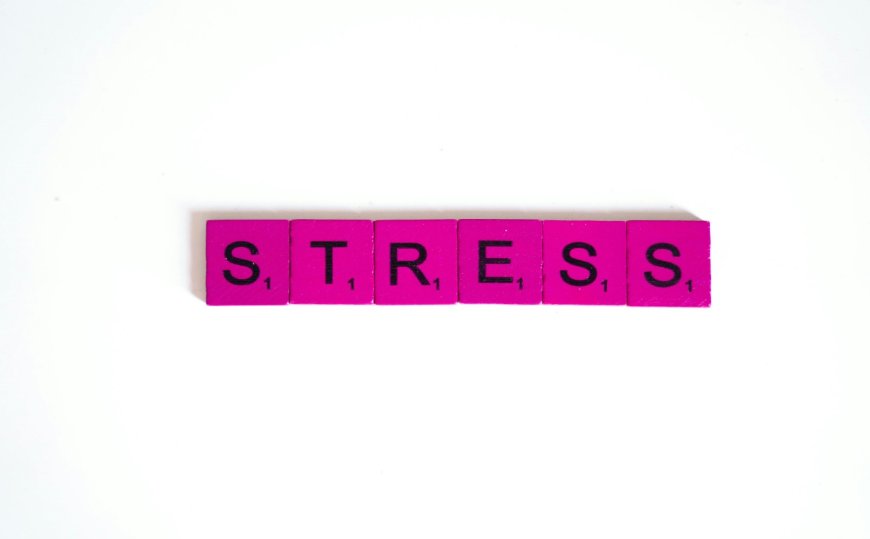Mindfulness and Stress Management Techniques for a Healthy Year

Stress is now a natural occurrence in the fast-paced environment we live in. Still, you can control stress and lead a better, more balanced life with the correct tools and approaches. Based on age-old customs, mindfulness has become a quite effective method for controlling stress. To make this year your healthiest yet, let's investigate stress management techniques and mindfulness activities advised by experts.
Definition of mindfulness
Mindfulness is the ability to be totally free from judgement in the moment. It is deliberately and acceptingly paying attention to your ideas, emotions, physical sensations, surroundings. This easy but powerful habit helps lower stress, sharpen concentration, and boost emotional wellness.
Mindfulness's Advantages for Stress Management
· Studies reveal that by mindfulness can greatly lower stress.
· Reducing the main stress hormone, cortisol
· strengthening emotional control.
· increasing concentration and lowering rumination.
· encouraging rest and improved sleep.
· Including mindfulness into your everyday schedule will enable you to more easily and powerfully negotiate the demands of life.
Mindful breathing
Among the easiest yet most powerful mindfulness techniques is deliberate breathing. It's about anchoring oneself in the present by concentrating on your breath.
Practice by comfortably sitting and closing your eyes. Deeply inhale through your nose; hold for a moment then gently exhale through your mouth. Pay close attention to how air feels entering and leaving your body. Benefits include decreased heart rate, less anxiety, and more relaxation
Meditation for Body Scanning
· A guided mindfulness practice, the body scan helps you to link with your bodily experiences.
· How to Practice: Either lie down or comfortably seat. Closing your eyes, focus on several areas of your body, working upward from your toes. Feel any tension or discomfort free from judgement.
· Benefits include releases of bodily tension, enhanced self-awareness, and relaxation encouragement.
The 3-Minute Breathing Space
· Busy people will find this fast exercise ideal.
· Spend one minute noting your present ideas and emotions; then, spend one minute concentrating on your breath and then one minute increasing awareness of your body and surrounds.
· Benefits: offers a mental reprieve from trying circumstances.
Deliberate eating
· By emphasizing the sensory experience of food, mindful eating helps you to enjoy every mouthful.
· Practice eating carefully without distractions. Note the texture, taste, scent, and look of every mouthful.
· Reduces overindulgence, enhances digestion, and encourages appreciation of food.
Progressive Muscle Relaxation (PMR)
· Tensing and relaxing muscular groups consecutively is the basis of PMR.
· Start with your toes tensing them for a few seconds before releasing. Calves, thighs, stomach, arms—gradually ascend your body—until you reach your face.
· Relieves physical tension, decreases blood pressure, and fosters peace.
· Engaging all five senses, this exercise grounds you in the present moment.
Name five objects you could see, four objects you could touch, three objects you could hear, two objects you could smell, and one object you could taste.
Benefits: Turns attention away from concerns to help to lower anxiety.
Journaling for Gratitude
· Developing thankfulness helps one to see things positively.
· Write in a notebook or app three things you are thankful for every day.
· Benefits include enhanced mood, lower stress, and more optimism3.
Strategies of Stress Management
Apart from mindfulness techniques, these advised tactics can help properly control stress:
1. Exercises for Deep Breathing
· Deep breathing sets off the parasympathetic nerve system, sometimes known as the "rest-and-digest" reaction.
· Breathe slowly in through your nose for four counts; hold for four counts; then exhale through your mouth for six counts.
· Among the benefits are quick relaxation and lowered cortisol levels.
2. Go outside
· Spending time in nature has been found to lower cortisol levels among other stress chemicals.
· Either stroll in a park or spend ten minutes sitting outside.
· Two advantages include better mood and mental clarity.
3. Good Nightfall
· Emotional resiliency depends on sleep.
· Limit screen time before bed and work on relaxation techniques like Yoga Nidra to create a nightly ritual.
· Benefits include improved emotional control, and less stress brought on by tiredness.
4. Motion
· Exercise lowers cortisol and releases endorphins—natural mood enhancers.
· To mix movement with awareness, practice yoga or conscious stretching.
· Among the benefits are better mental and physical health.
5. Emotional Freedom Technique (EFT)
Often referred to as tapping treatment, EFT uses acupressure point stimulation with an eye towards emotions. Among the benefits include better emotional control and less worry. These are some doable strategies to include mindfulness in regular tasks:
· Spend five minutes every morning determining your objective for how you want to approach the day.
· Whether you drive or walk, instead of allowing your thoughts to run wild, focus on the sights, sounds, and sensations around you.
· Stop throughout changes between tasks or meetings to inhale deeply.
· Participate fully in conversations by practicing attentive listening—that is, giving them your whole attention free from interruption or judgement.
Being mindful is not only a habit but also a way of life that will help you to approach problems and stress. These professional-recommended mindfulness activities and stress-reducing strategies will help you develop more emotional resilience, sharpen focus, and boost general well-being.
Remember that developing mindfulness is a talent that requires time; be patient with yourself as you discover what suits you most. With constant work, this might be the year you really shine—mentally, emotionally, and physically!
What's Your Reaction?
 Like
0
Like
0
 Dislike
0
Dislike
0
 Love
0
Love
0
 Funny
0
Funny
0
 Angry
0
Angry
0
 Sad
0
Sad
0
 Wow
0
Wow
0





































